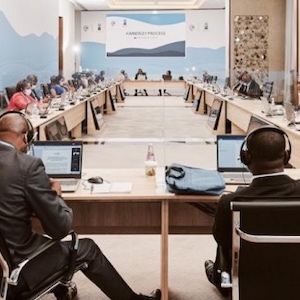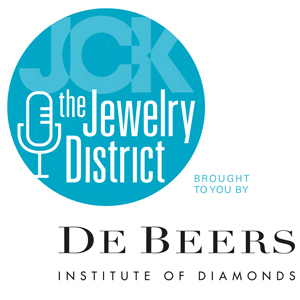
The United States, the European Union, and allied governments—traditionally staunch supporters of the Kimberley Process (KP)—have grown frustrated with the certification scheme and are questioning whether to continue devoting their current level of resources to it, says Hans Merket, a researcher for the International Peace Information Service (IPIS) and a member of the Kimberley Process Civil Society Coalition (KPCSC).
“The thought process has become the Kimberley Process doesn’t work anymore,” he says. “The general sentiment is that they are considering what’s next.”
But don’t expect a KPexit, he says; even the scheme’s harshest governmental critics haven’t advocated for saying goodbye anytime soon. Yet, he senses a shift in their thinking.
In the past, the “Western bloc” that has pushed for KP reforms—generally comprising the United States, the European Union, Canada, Australia, Switzerland, and the United Kingdom—would routinely express disappointment at the slow pace of progress at the KP. But those countries were also willing to accept its faults, Merket says.
Following Russia’s invasion of Ukraine, “they are starting to doubt whether the KP is serving the right purpose,” he adds. “They have wanted to keep it to maintain consumer confidence in diamonds. But the KP seems to be eroding consumer confidence in diamonds.”
He adds that some feel “the industry’s drive toward traceability may make the KP less essential.”
Among the options being considered is enlisting a consultant to plot out different courses of action, he says.
A government official tells JCK that the Kimberley Process is still viewed as an “important baseline.” But this person notes that Russia’s invasion of Ukraine poses a “huge challenge” that the organization needs to address.
While having the KP ban Russian diamonds was always considered a long shot, at last month’s KP intercessional, held in Kasane, Botswana, the organization couldn’t even agree to discuss the topic.
Besides the Western bloc, the only other countries that voted in favor of raising the subject were Japan and Ukraine. While the KP operates on a model of absolute consensus, in this case, the proposal did not even attract the support of a simple majority.
“They didn’t want [the Russian issue] to be the West versus the rest of the world, but that is what it mainly became,” Merket says.
Russia’s invasion of Ukraine has brought new levels of acrimony to the KP, with the United States and United Kingdom routinely boycotting groups chaired by Russia.
In a letter to the KP chair seen by Reuters, the European Commission’s Marika Lautso-Mousnier wrote that inaction on the Ukraine invasion “would undermine the credibility and integrity of the Kimberley Process not only as a conflict prevention mechanism but also as a trade regulation mechanism.”
Ioanna Sahas Martin, director of natural resources and governance for Canada’s economic development bureau, said similarly that the KP “cannot refuse to consider the valid questions that have been raised about whether rough diamonds exported by Russia are financing its invasion of Ukraine.”
Russia’s foreign ministry told the news agency that it condemned what it calls efforts “to politicize the work of the Kimberley Process by deliberately distorting or even openly replacing its basic principles.”
KP chair Jacob Thamage tells JCK that the meeting’s start was “not easy,” as the group debated whether to discuss the Russian issue. But “all in all the meeting went well and progress made on issues before the KP working bodies,” he says.
Photo courtesy of the Kimberley Process
Follow JCK on Instagram: @jckmagazineFollow JCK on Twitter: @jckmagazine
Follow JCK on Facebook: @jckmagazine





